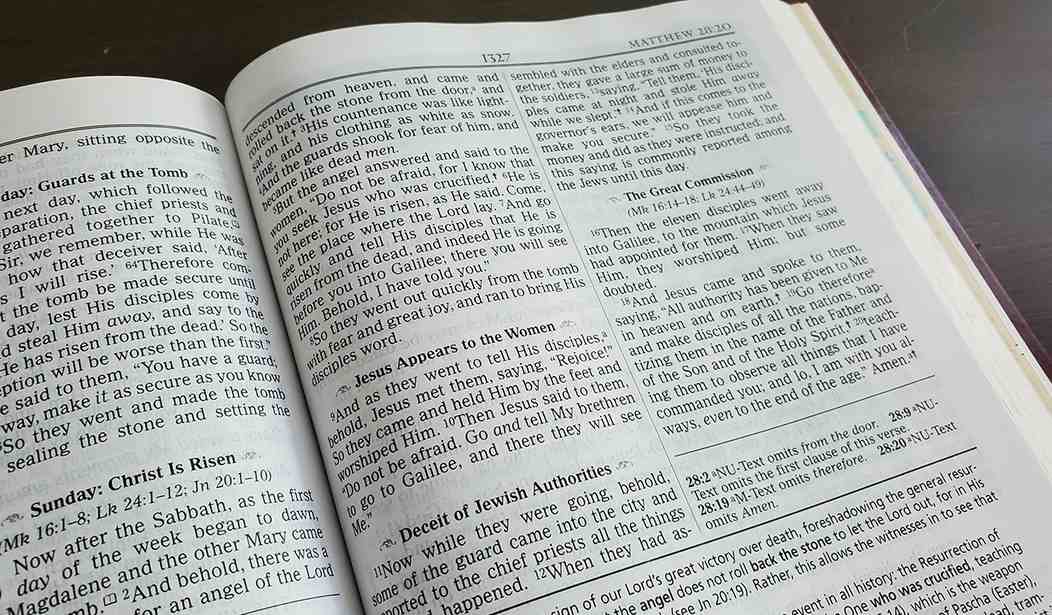School districts, principals, teachers, parents, and perhaps even a few students in Oklahoma were likely surprised yesterday by a letter from Ryan Walters, the state superintendent of public instruction.
Walters' letter informed superintendents across the state that all schools must incorporate the Bible, including the Ten Commandments, into the curricula for all students in grades 5-12. In the message, Walters said:
The Bible is one of the most historically significant books and a cornerstone of Western civilization, along with the Ten Commandments. They will be referenced as an appropriate study of history, civilization, ethics, comparative religion, or the like, as well as for their substantial influence on our nation’s founders and the foundational principles of our Constitution. This is not merely an educational directive but a crucial step in ensuring our students grasp the core values and historical context of our country.
Via The Oklahoman:
Walters added that adherence to the mandate is compulsory and that “Immediate and strict compliance is expected.”
The Oklahoman reported that the state attorney general's office released a statement that said, in part, “Oklahoma law already explicitly allows Bibles in the classroom and enables teachers to use them in instruction.” The paper also noted that the directive has met with opposition from the Oklahoma Education Association, the Oklahoma chapter of CAIR, and Americans United for Separation of Church and State. That organization's president, Rachel Laser, called the move "textbook Christian nationalism," adding, "Public schools are not Sunday schools. Walters has repeatedly made clear that he is incapable of distinguishing the difference and is unfit for office. His latest scheme — to mandate use of the Bible in Oklahoma public schools’ curriculum — is a transparent, unconstitutional effort to indoctrinate and religiously coerce public school students."
In a press release provided to PJ Media, Walters said:
The Bible is an indispensable historical and cultural touchstone. Without basic knowledge of it, Oklahoma students are unable to properly contextualize the foundation of our nation which is why Oklahoma educational standards provide for its instruction. This is not merely an educational directive but a crucial step in ensuring our students grasp the core values and historical context of our country. The Bible is one of the most historically significant books and a cornerstone of Western civilization, along with the Ten Commandments. They will be referenced as an appropriate study of history, civilization, ethics, comparative religion, or the like, as well as for their substantial influence on our nation’s founders and the foundational principles of our Constitution.
He has a point. Far from being a fairy tale written by a bunch of "illiterate goat herders" (an atheist phrase that has always irked me), the Bible is a fascinating compilation of history, philosophy, poetry, satire, politics, morality tales, and, yes, faith instruction. For Christians, the Bible contains all things necessary for salvation. But it can also spark hours of thoughtful debate for people willing to engage in it without even touching on matters of faith.
One could see this as a natural reaction to the stories that seemed to crop up daily about teachers including DEI, CRT, and LGBTQ elements in class curricula, and it raises the issue of whether or not Jewish, Muslim, and atheist families will be allowed to opt their children out of the instruction.
Another question that needs to be addressed is how will the classes be taught. It is possible to study the Bible as literature alone, but it may prove more difficult to keep personal faith out of the lesson plans than thought.
For example, I went to grad school to earn a Master's degree in religion with an emphasis in Biblical Studies. I likely have most of the basics of faith in common with many Christians. But there are some parts of the Bible that I do not take literally. If you are someone who believes in complete inerrancy and that every part of the Bible is true as it is written, would you want me to teach your students? Or suppose the reverse was true? What would we say to that family? And yes, there is the issue of Jewish, Muslim, and atheist students who might feel uncomfortable with the instruction.
The Bible is a gold mine of information and perfectly suits an academic atmosphere. There is even the opportunity to compare and contrast it with the Koran or other writings in a classroom setting. Should the directive survive the challenges, and if Walters' office can resist the urge to proselytize, the potential is there for a resounding success.










Join the conversation as a VIP Member